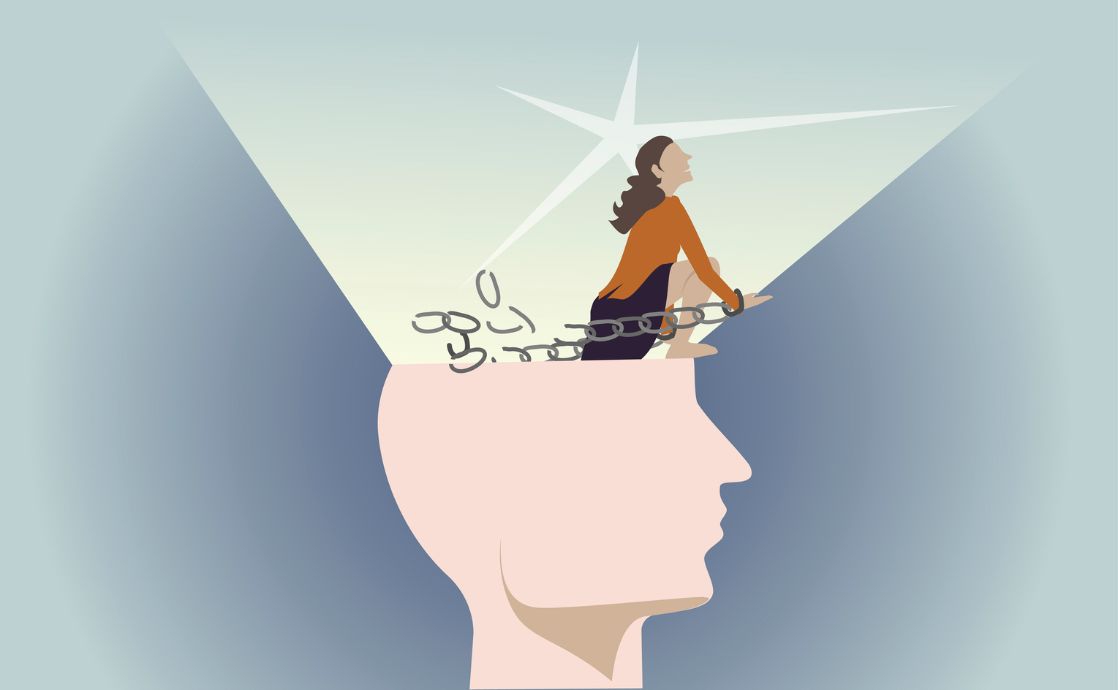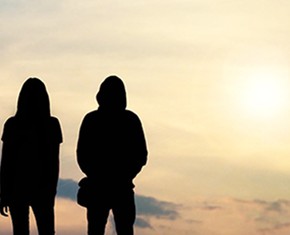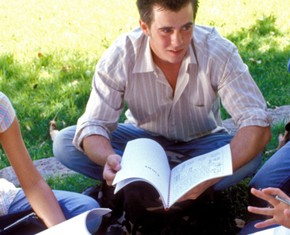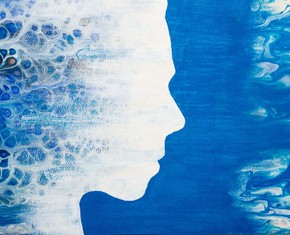The views expressed in our content reflect individual perspectives and do not represent the authoritative views of the Baha'i Faith.
As a new adjunct professor teaching at the community college level, I hear the words “oppressor, oppressed, oppression” consistently from both teachers and students, and the topic pervades media spaces lately, too.
So I began to wonder what the Baha’i writings have to say about concepts like this one, which are increasingly prevalent in public discourse but defined in many different ways.
RELATED: Is Ignorance a Form of Oppression?
The word “oppression” occurs hundreds of times in the Baha’i writings, but in most cases, it refers to the oppression of the early believers in the Faith, who were persecuted in many terrible ways by the religious authorities of the time. Baha’u’llah, who suffered some 40 years of torture, imprisonment, and exile, also referred to himself as “The Oppressed One.”
Interestingly, the Baha’i writings also refer to oppression in the context of spiritual oppression — hardly mentioned at all in today’s dialogues. Baha’u’llah wrote about it this way:
What ‘oppression’ is more grievous than that a soul seeking the truth, and wishing to attain unto the knowledge of God, should know not where to go for it and from whom to seek it? For opinions have sorely differed, and the ways unto the attainment of God have multiplied. … by ‘oppression’ is meant the want of capacity to acquire spiritual knowledge and apprehend the Word of God. By it is meant that when the Daystar of Truth hath set, and the mirrors that reflect His light have departed, mankind will become afflicted with ‘oppression’ and hardship, knowing not whither to turn for guidance.
From this perspective, then, perhaps all of us suffer from oppression — because we have not listened to the spiritual guidance the Creator has offered us, most recently via the revelation of Baha’u’llah.
How does this sort of oppression come about? Qualities like oppression, disputes, strife, bloodshed, and pillaging are mentioned in the Baha’i writings as originating from the world of nature, not from the higher spiritual realms. As Abdu’l-Baha noted:
Few are those who have been freed from this darkness, who have ascended from the world of nature to the world of man, who have followed the divine Teachings, have served the world of humanity, are resplendent, merciful, illumined and like unto a rose garden.
In more societal terms, when we attempt to bring justice to the world of humanity, Baha’u’llah’s teachings counsel his followers to be “an upholder and defender of the victim of oppression.” The Baha’i writings also associate the word “oppression” with tyranny, as in the following passage by Baha’u’llah: “Justice is, in this day, bewailing its plight, and Equity groaneth beneath the yoke of oppression. The thick clouds of tyranny have darkened the face of the earth and enveloped its peoples.”
In another passage from a speech he gave in Paris, Abdu’l-Baha said:
My hope for you is that you will ever avoid tyranny and oppression; that you will work without ceasing till justice reigns in every land, that you will keep your hearts pure and your hands free from unrighteousness.
Clearly, oppressors exist in human society, as any review of the actions of war criminals and tyrants will attest, and their victims deserve justice via effective institutions and the fair application of international law. Baha’is everywhere aim to tackle the many injustices in society that need to be addressed, including, among others, eliminating structural racism and addressing the extremes of wealth and poverty, which see some living in the lap of luxury while masses of humanity live in the utmost misery and privation.
At an individual level, however, the Baha’i writings seem much more nuanced to me. They do not segregate and divide people into antagonistic groups based on any class of “oppressors” vs. “the oppressed.” This approach is prominently featured in the ideologies of thinkers such as German political theorist Karl Marx and Brazilian philosopher and educator Paolo Freire. While these thinkers have rightly called attention to injustices in society, their ideas and solutions, at least in my view, seem fundamentally divisive, setting groups of human beings in opposition to one another. Historically, class antagonism of this sort has led societies down some very dark, disunified, and blood-stained paths.
According to the Baha’i teachings, prejudices never work out well. Adopting that sort of mindset can only cause injury to others and to ourselves. As a November 2022 letter from the Universal House of Justice — the democratically-elected global governing body of the Baha’i Faith — noted: “Rivalry between groups harms all, obstructs justice, and suppresses the potentialities of individuals and groups, whose contributions are necessary for the betterment of society.”
What might putting this principle into operation in our daily lives look like? The Baha’i teachings recommend starting by not judging and categorizing whole groups of people as either “good” or “bad.” As an example, I was required to use a curriculum a few years ago that repeatedly labeled all white and “privileged” classes as “oppressors” and said they had done almost nothing good for society over several hundred years and that everyone else, labeled “the oppressed,” needed to revolt, with violence if necessary.
History shows signs of both advances and setbacks, and educators should, of course, teach both narratives, but not recognizing the former and judging whole categories of people based on labels and stereotypes seem both very wrong to me and intellectually lazy. As a result, I left that role as soon as possible. I hope that teachers everywhere can convey that all young people — of any class or race or background — deserve dignity. This requires going beyond labels and exploring how each person can meaningfully contribute to the betterment of society.
RELATED: How to Start Answering the Question “Who Am I?”
For Baha’is, that approach includes those with financial means. The Baha’i writings have many passages that laud those who are generous and who use what they have honestly acquired to help the less fortunate. The Universal House of Justice has written further on this point: “Only if you perceive honour and nobility in every human being — this independent of wealth or poverty — will you be able to champion the cause of justice.”
In fact, at a one-on-one level, the Baha’i writings urge Baha’is to “treat their oppressors with loving kindness.” As Abdu’l-Baha explained:
O ye my loved ones! The world is wrapped in the thick darkness of open revolt and swept by a whirlwind of hate. It is the fires of malevolence that have cast up their flames to the clouds of heaven, it is a blood-drenched flood that rolleth across the plains and down the hills, and no one on the face of the earth can find any peace. Therefore must the friends of God engender that tenderness which cometh from Heaven, and bestow love in the spirit upon all humankind…. They must sacrifice themselves for their friends, and wish good fortune to their foes. They must comfort the ill-natured, and treat their oppressors with loving-kindness. They must be as refreshing water to the thirsty, and to the sick, a swift remedy, a healing balm to those in pain and a solace to every burdened heart.
















Comments
Sign in or create an account
Continue with Googleor